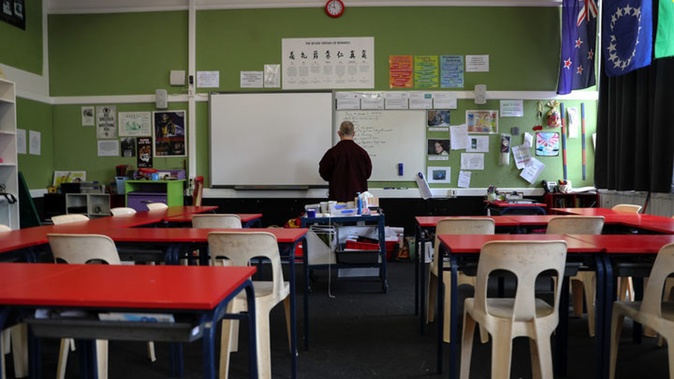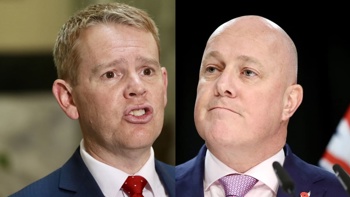
By John Gerritsen of RNZ
An arbitration panel says secondary teachers should get a 14.5 per cent pay rise spread over three instalments.
The recommendation is expected to end a protracted pay dispute between the Ministry of Education and the Post Primary Teachers Association.
If accepted by both parties the recommended settlement is likely to have knock-on effects for early childhood and primary school teachers. Under pay parity rules, the Ministry of Education must offer any changes to teachers’ unified base salary scale to primary teachers and then in turn to kindergarten teachers.
The panel recommended a 6 per cent pay rise backdated to the start of this month, plus 4 per cent in April next year and 3.9 per cent in December next year.
“This would see base pay move by 14.5 per cent by the end of the proposed collective period,” the panel decision said.
The increase would shift starting pay for most new secondary teachers from $55,948 to $64,082 by the start of 2025, while pay rates for teachers at the top of the scale would increase from $90,000 to $103,085.
That appeared to be better than the pay scale recently agreed by primary teachers where the equivalent points on the pay scale would increase to $63,187 and $100,000.
The panel said the term of the new collective agreement should be three years, from July 3, 2022, to July 2, 2025.
The panel also recommended one-off payments of $5000 for all teachers, a further $1500 for PPTA members, and up to $710 to cover teaching practising certificate renewal.
The decision said the Post Primary Teachers Association had sought a pay rise totalling 17.9 per cent backdated to the end of the previous collective agreement on July 1, 2022, while the Ministry of Education was offering 11.1 per cent starting from July 1, 2023 to June 30, 2025.
Secondary teachers had not had a pay rise since July 1, 2021, it said.
“Undeniably, the value of their salaries has diminished significantly over that period due to annual inflation, as measured by the New Zealand Consumers Price Index (CPI) in the years to June 2022 (7.3 per cent) and June 2023 (6.0 per cent),” the panel said.
“How this diminution in value should be addressed in the settlement of the new STCA has been the most strongly contested issue between parties in their bargaining and in the arbitration.”
The panel based its recommendation on the Household Living Price Index, which it said measured the cost of living for households and was less volatile than the Consumer Price Index.
“It also focuses on costs that would commonly be regarded as fundamental to the expenditure of teacher salaries, and it can be broken down into different household types, allowing the panel to discern the cost of living for groups with household incomes similar to teachers,” the panel’s decision said.
/cloudfront-ap-southeast-2.images.arcpublishing.com/nzme/RQBZE7WRW56AH7ZOIHIYVSCLWM.jpg)
Thousands of striking secondary school teachers in May. Photo / NZME
It said for households with a similar income to secondary teachers, the index had increased an average 2.74 per cent a year over the past 10 years, a figure that supported a 14.5 per cent increase for the period to be covered by the collective agreement.
The union had sought allowances for teachers with advanced te reo Māori knowledge, but it instead recommended a trial of 335 community liaison roles which would have a small amount of release time from other duties and $1000 payments, the panel said.
Better partnership
The arbitration panel strongly recommended the creation of a new body to improve relations between the Ministry of Education and Post Primary Teacher Association.
The panel’s report said the union had complained that the ministry had not engaged in productive discussions about long-standing issues raised since the previous collective agreement was settled.
The report said timely engagement on those matters was likely to make bargaining easier.
One option was to create a standing committee with an independent chair, it said.
“We regard the establishment of such a body as a matter that should be given the highest priority by the parties and that the impending general election does not provide any impediment to the parties reaching agreement on what form that body should take,” the panel’s decision said.
“We suggest that the body should set “report back” dates along a timeline that will support both parties in their 2025 bargaining and minimise the risk of further industrial action.”
The report said the cost of setting up and running the new organisation would be preferable to the financial and reputation cost of long-running disputes and industrial action.
The Ministry of Education and the PPTA had commented about a long-term solution to determining teachers’ pay rates and minimising the need for industrial action, it said.
The panel’s report said in the United Kingdom an independent organisation advised the government on English teachers’ pay and conditions.
The recommendations were not binding, but provided a strong foundation for negotiations, it said.
“The panel acknowledges that any suggestions for legislative change for a similar body in New Zealand would require policy work approved by the minister and consultation prior to the presentation of any proposal to the government of the day. We also acknowledge this could be a lengthy process, but we do not consider there needs to be any delay in beginning discussions about any such proposal.”
Take your Radio, Podcasts and Music with you









